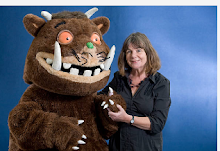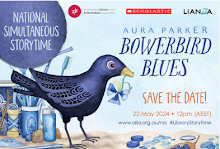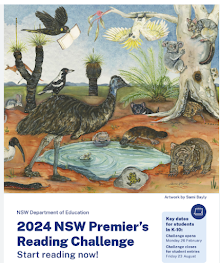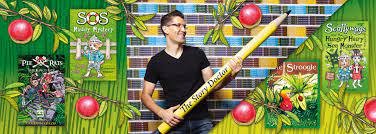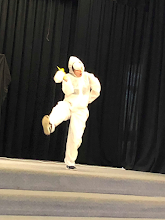Book Fair
2024
Every year we look forward to the annual book fair. This year it will take place on Monday October 28th. This is a great opportunity to do some early Christmas shopping and help the school library at the same time.
The Term
Four Library Program
Early Stage One
In this unit
the students will study the work of Julia Donaldson. She is one of England’s most celebrated
children’s authors and has sold more than 100 million books worldwide and been
translated into around 100 languages. From 2011 until 2013 she was England’s
children’s laureate. In her stories, Julia Donaldson has the ability to weave
moral lessons and themes of friendship, bravery, and kindness into her stories.
The rhythm
and songlike quality of the words make her books a joy to read. The colourful
illustrations by Axel Scheffler complement the words perfectly. Importantly,
the repetition in many of her stories encourages the development of word recognition and phonological awareness.
Stage One
The Stage One teachers have requested a library unit of study which focuses on visual literacy
and persuasive writing.
In weeks one
to six a collection of texts has been chosen which enhance the ability to
interpret, comprehend, appreciate, use, and create visual media.
In weeks
seven to ten a collection of texts has been chosen in which the writer attempts
to convince or persuade the audience to adopt a particular point of view. Using
fiction and non-fiction texts, the students will be encouraged to identify the
main points of view to gain a deeper understanding of what they are reading.
Stage Two
In weeks 1 -3 of term 3 we will complete the literature
studies that were planned for term 2.
The library unit in weeks 4-10 is
aligned with the Stage Two history unit researching the First Fleet.
Investigations will include:
- The British perspective- life in Britain before 1788.
- The transportation of adults and children.
- Conditions on transport ships and in the colony.
- The Aboriginal perspective.
- The colonisation of Australia.
Stage Three
The library
unit is aligned with the Stage Three geography unit investigating the unique
characteristics of countries within the Asia region.
In library
studies, each student will research one designated Asian country. They will
then demonstrate their learning in a presentation for their class.
The Library
in Weeks Six to Ten
I will be
taking leave from week six until the end of the year. Miss Remmington will be
very capably taking my place.








